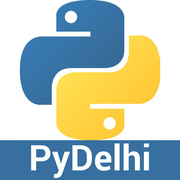Announcing SciPy 2016 Keynote Speakers!
 | Brian Granger - Cal Poly State University / Associate Professor of Physics Brian Granger is an Associate Professor of Physics at Cal Poly State University in San Luis Obispo, CA. He has a background in theoretical atomic, molecular and optical physics, with a Ph.D from the University of Colorado. His current research interests include quantum computing, parallel and distributed computing and interactive computing environments for scientific and technical computing. He is a core developer of the IPython project and is an active contributor to a number of other open source projects focused on scientific computing in Python. |
 |
Andreas Klöckner - University of Illinois at Urbana-Champaign
Andreas Klöckner is an Assistant Professor in the scientific computing group within the Department of Computer Science at the University of Illinois at Urbana-Champaign. He works on high-order numerical methods for the simulation of wave problems as well as issues in high-performance scientific computing that relate to bringing these methods to life on large-scale parallel computers. In support of his research, Dr. Klöckner has released numerous scientific software packages. He obtained his PhD degree at the Division of Applied Mathematics at Brown University with Jan Hesthaven, working on large-scale finite element simulations of wave problems in the time domain. From Brown, Klöckner moved to the Courant Institute of Mathematical Sciences at New York University as a Courant Instructor, where he worked on integral equation methods and fast algorithms within Leslie Greengard's group. |
 |
Hanna Wallach - Microsoft Research NYC / Adjunct Associate Professor, UMass Amherst
Hanna Wallach is a researcher at Microsoft Research in New York City and an assistant professor at the University of Massachusetts Amherst's School of Computer Science, where she is one of five core faculty members involved in UMass's recently formed Computational Social Science Initiative. Hanna develops new machine learning methods for analyzing the structure, content, and dynamics of complex social processes, such as the US political system, the US patent system, and software development communities. Her research contributes to machine learning, Bayesian statistics, and, in collaboration with social scientists, to the nascent field of computational social science. Her work on infinite belief networks won the best paper award at AISTATS 2010. Hanna has organized several workshops on Bayesian latent variable modeling and computational social science. She also co-founded the annual Women in Machine Learning Workshop. Hanna holds a B.A. in Computer Science from the University of Cambridge, an M.S. in Cognitive Science and Machine Learning from the University of Edinburgh, and a Ph.D. in Physics from the University of Cambridge. |
























